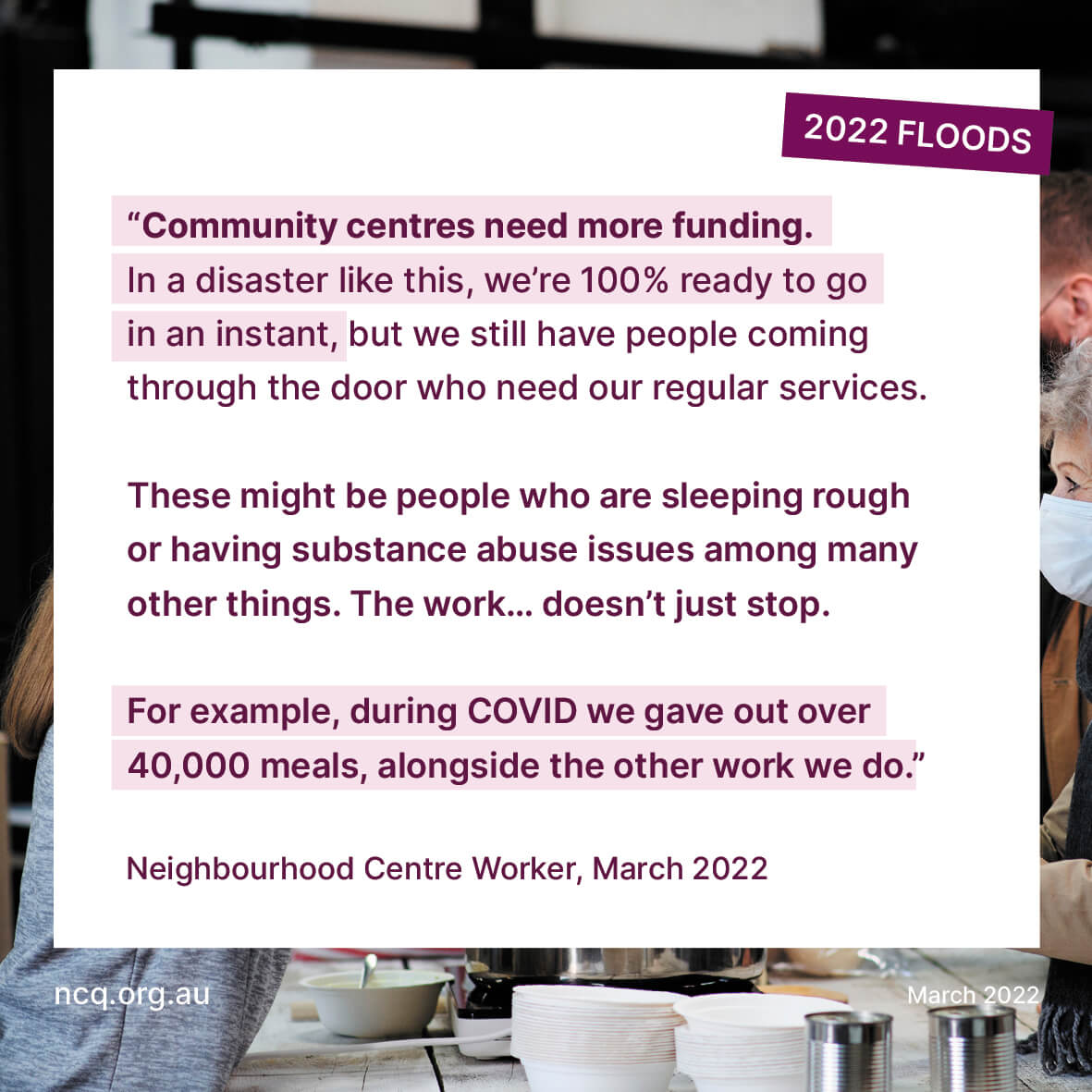When NCQ spoke with frontline neighbourhood centre staff in flood-affected communities, a common theme arose: the urgent need for additional funding to allow them to better support the community.
Without any flood recovery funding from the government, some centres turned to fundraising efforts, and some staff used their own money to provide essentials for the community.
They generously shared the following insights:
“For emergency relief we have to physically fundraise on top of our normal jobs. We need to go out and organise fundraising functions, to raise the funds to pay for people in emergency relief roles.”
Neighbourhood Centre Coordinator
“Last time [2011 floods], we had no funding for six months. We had no wages, no money from the government, we were running only on community support. We were often purchasing things people needed with our own personal money. This time round we come with a building, paid staff and we are able to mobilise really quickly. Since Sunday morning we’ve had our doors open, ready to give assistance in any way we can.”
Neighbourhood Centre Worker
“When we went down to respond in the first week, we had no funding, but we’re a local community service with strong ties to our community members and we wouldn’t have it any other way.”
Neighbourhood Centre Coordinator
“We’re the ongoing role after the emergency services leave. The aftercare is a big part of a disaster. When it first happens, it’s all over the media and there’s tonnes of support at the start but then [that support] dissipates to nothing, that change is quite significant.”
Neighbourhood Centre Manager
“Community centres need more funding. In a disaster like this, we’re 100% ready to go in an instant, but we still have people coming through the door who need our regular services. These might be people who are sleeping rough or having substance abuse issues among many other things. The work… doesn’t just stop. For example, during COVID we gave out over 40,000 meals, alongside the other work we do.”
Neighbourhood Centre Worker
—
Published: 23 March, 2022
